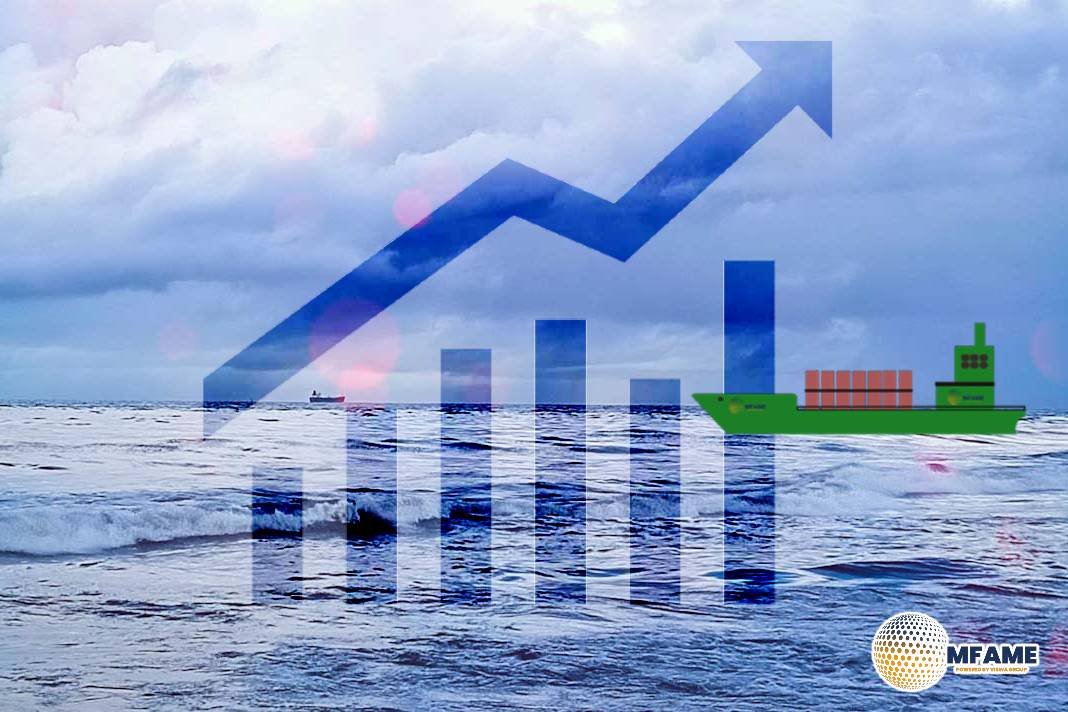 The cost of insuring vessels that will transit the Red Sea jumped again this week after mounting attacks in the region forced some ships to avoid the vital waterway, underscoring the need to secure an area that’s pivotal to global trade, says an article published on Bloomberg website.
The cost of insuring vessels that will transit the Red Sea jumped again this week after mounting attacks in the region forced some ships to avoid the vital waterway, underscoring the need to secure an area that’s pivotal to global trade, says an article published on Bloomberg website.
Sharp Increase In Insurance Rates
The insurance rates for ships transiting through the Red Sea have seen a significant surge, jumping to approximately 0.5% of a ship’s hull value. This increase is substantial compared to the earlier rates of 0.1% to 0.2%, highlighting the heightened risks in the region.
Response To Houthi Attacks
The United States and its allies are forming a task force to address the threat posed by the Iran-backed Houthi rebels, who have intensified their attacks on merchant vessels. While military action is under consideration, diplomacy remains the primary approach for now.
War Risk Insurance And Its Implications
War risk insurance, usually quoted as a percentage of a ship’s value, has seen a tenfold increase due to the escalating conflict. The expanded designation of high-risk areas in the Red Sea by London insurers further necessitates this coverage.
Impact On Global Shipping And Trade
Major shipping companies, including A.P. Moller-Maersk, have suspended transits through the Red Sea. This decision, echoed by oil giants like BP Plc and Equinor ASA, is contributing to global inflation risks. Vessels are opting for longer routes around Africa, impacting the cost and duration of shipping.
Financial Implications For Ship Owners
For a $100 million vessel, the increased insurance cost can reach $500,000 per voyage. This cost applies to merchant ships navigating the Southern Red Sea or Gulf of Aden and directly affects the pricing of goods.
Rerouting And Its Consequences
Ships bound for Europe are diverting around Africa, adding 10-14 days to their journey. This detour avoids the Red Sea but leads to delays in deliveries and extended times for ships to return for subsequent cargoes.
Global Trade Disruptions
The conflict-induced disruptions in the Red Sea, coupled with the ongoing Israel-Hamas war, are straining two critical trade routes: the Panama and Suez Canals. This situation poses a threat to the smooth flow of global trade.
Long-Term Effects On Supply Chains
The delays and rerouting of ships are expected to cause significant disruptions in supply chains. The precedent set by the 2021 blockage of the Suez Canal, which took months to normalize trade, underscores the potential impact of the current situation.
Significance For Global Trade
Approximately 90% of the world’s trade is conducted by sea, with the Suez Canal alone handling about 12% of this maritime traffic. The current disruptions in this crucial area have far-reaching implications for global commerce.
Did you subscribe to our daily Newsletter?
It’s Free! Click here to Subscribe
Source: Bloomberg























Echoing the sentiments above – this post is a true gem!
Your post made me feel seen and understood in a way that I haven’t felt in a long time. Thank you.
Your words of wisdom came at just the right time. Thank you for sharing your insight.
Terpercaya
danatoto alternatif link!
Your post was a reminder that even on the toughest days, there is still beauty to be found. Thank you.
Your post gave me the strength to face another day with hope in my heart. Thank you.
Your kindness knows no bounds. Thank you for being a source of love and support.
Grateful for this insight, mandatory read.
Its like you read my mind! You appear to know a lot about this, like you wrote the book in it or something. I think that you could do with some pics to drive the message home a little bit, but instead of that, this is fantastic blog. An excellent read. I will certainly be back.
With their extensive range of fittings, including elbows, tees, couplings, and more, Elitepipe Plastic Factory offers comprehensive solutions for various pipe systems and installations. Elitepipe Plastic Factory